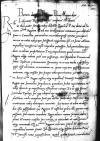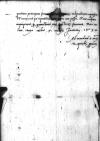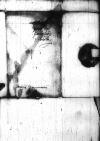Letter #1075
Bona Sforza to Ioannes DANTISCUSVilnius, 1534-01-05
| received [1534]-01-12 Manuscript sources:
Prints:
| ||||||
Text & apparatus & commentary Plain text Text & commentary Text & apparatus Excerpts concerning Dantiscus' travels
[Reverendo in] Christ[o] Patri, [domino]
Reverende in Christo Pater, sincere nobis dilecte.
Ex cf.
Nostram itaque creaturam nobis obiurgare convenit. Hortamur, ut odia ac dissidia ista posthabeat, quae regiam et nostram gratiam illi parere non possunt, sed omnia mandata regia alacri animo semper adimpleat et omnia consilia sua viresque eo intendat, ut cum honore atque commodo serenissimorum
Id officium atque ipsum debitum Paternitatis Tuae et honesti ratio expostulant. Quod cum fecerit, cumulatiorem gratiam principum suorum speret, sin minus, indignationem cognoscet et nemo erit, qui ingratitudinem notare non posset et nos culpam impingere{n}t, quod provectionis eius auctrices fuerimus.
Bene valeat.
Datae
Ad mandatum sacrae


